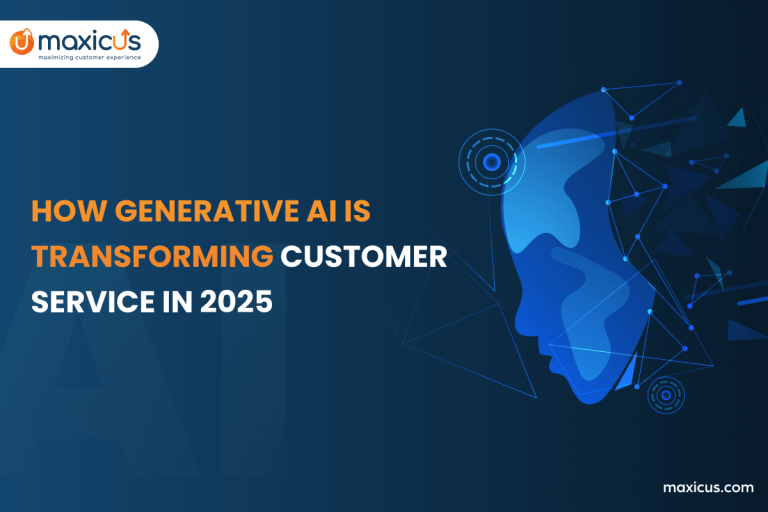How Digital Automation is Transforming the Retail Industry
What is digital automation? At its core, digital automation is the use of software and technology to automate tasks traditionally performed by humans or activities requiring manual intervention. The concept is not new, but it is now being used in new ways and on a much larger scale than ever before.
Automation can bring together people, devices, applications, and information across an organization to put together a single-view point of access and enable digital evolution. In fact, around 74% of marketers feel automation can save time. Swiftly responding to emails and social media interactions of your user base will improve brand visibility and customer retention.
For several years, online shopping has been a critical component of the retail industry. But as we move into an era where consumers are demanding more convenient and personalized shopping experiences, retailers are adopting radically different strategies to evolve and grow. This has led to a paradigm shift in the industry, compelling them to move to adopt digital automation.
Phygital in retail industry becoming more digitally advanced by the day, adopting a tailored approach for each customer. Several factors, including changing customer dynamics, trends, and needs, have necessitated the retail industry’s embracing of creative ways and rapid adoption of technology.
Wider and more effective choices are now available as a result of digital transformation in retail industry. Digital transformation trends in retail industry tactics are increasingly being used in the retail industry to update the entire process by combining many assets such as divisions, businesses, and new technologies. The four pillars that are essential for digital transformation in retail include:
- Customer engagement
- Staff empowerment
- Optimizing operations
- Reimagining your product
What Makes Digital Automation an Imperative for the Retail Industry?
Digital automation in retail industry enables retailers to adjust their offerings to suit their customers’ needs. This, in turn, boosts sales, optimizes operational efficiency, and revamps customers’ shopping experience. Below are a few pointers that highlight how use of ai in retail industry can be a great tool for retailers to improve their customer experience.
1. Efficient Operations
Automated processes can free up resources from spending time on routine jobs, thereby human effort can be transferred to where it is most needed. Time wasted on dependencies and ineffective scheduling can be eliminated with the help of technology using real-time automated job distribution, allocation, and tracking solutions. Deviation-handling workflows that are reactive can help prevent further escalations.
Advanced algorithms can help you hire the proper full-time or part-time personnel based on required skill-sets and time-sensitive needs, ensuring that each division has the right headcount. This reduces employee costs while simultaneously improving overall operational performance.
2. 24/7 Support Availability
Automation enables your business to provide services across the globe. Customers want brands to be accessible and responsive round-the-clock. This is where automated customer service comes to the rescue. It enables businesses to provide all-time customer assistance and quickly handle concerns.
Customers can have their questions answered 24/7 having to wait significant amounts of time for a response. This could be critical for retail organizations that operate globally and want to enhance customer service.
3. Actionable Insights
Every day, millions of website interactions and orders provide retailers with important information about client preferences. With automation in place, businesses can quickly gather information on the products that customers want or complaints about multiple issues, allowing for speedy resolution before customers move on to purchase from somewhere else.
In addition to giving individualized recommendations, data insights enable retailers to launch new products by anticipating future demands and becoming the first to market. Given the ever-changing retail market, automated processes can provide retailers with the flexibility and real-time data they need to stay ahead of the curve.
4. Competitor Analysis
Digital automation allows you to decrease cycle times and cost-per-piece while improving quality. This allows you to better compete on a local as well as global scale. Additionally, the flexibility of artificial intelligence and machine learning (AI/ML) enables you to retool a cell to exceed the capabilities of your competition.
5. Cost Reduction
Switching from manual to automated business processes allows for error minimization. That way, very little time and money are wasted on fixing issues and order management and tracking. In fact, businesses that automate their processes are able to reduce their overall costs by 10% and improve profitability by 8%.
6. Enhanced Customer Experience
Personalized and fast access to services is a significant feature that customers are looking for when comparing your brand with your competitors. Automation enables faster, more enhanced, and personalized services. Plus, it is much easier to assist customers when you can easily retrieve their information instead of wasting hours chasing down papers.
Meeting the promised standard of operational excellence drives loyalty and satisfaction, which in turn builds brand advocacy, trust, and competitive advantage.
Growing Role of AI in Retail
To meet current consumer trends and demands of AI in retail industry, retailers are investing in AI-driven, self-service solutions like knowledge management, and omnichannel support to ensure smoother transactions and seamless engagement across all touchpoints.
There’s been significant growth in the number of organizations embracing AI-based solutions. Automated customer service interactions are playing an equally important role in transforming customer experiences.
Select the perfect outsourcing partner for your business
Final Thoughts
The possibilities for implementing automation in retail operations are endless. Retailers must assess and identify:
- The processes that can be automated
- The potential gains that can be realized
- The capabilities and limitations of technology
- The effort required to deploy those automated capabilities
For each retailer, or even for different portions of a retailer’s operations, the correct balance between what is automated and what is left in the hands of humans will be different. A seamless customer experience can add wings to your business’s success by enhancing customer retention and loyalty. Beyond chatbots and self-service platforms, AI-driven automation is revolutionizing the consumer experience by tailoring product offerings to their specific requirements. Moreover, AI can assist agents in streamlining their workflows and eliminating mundane tasks, making them more likely to enhance operations, now and in the future.










